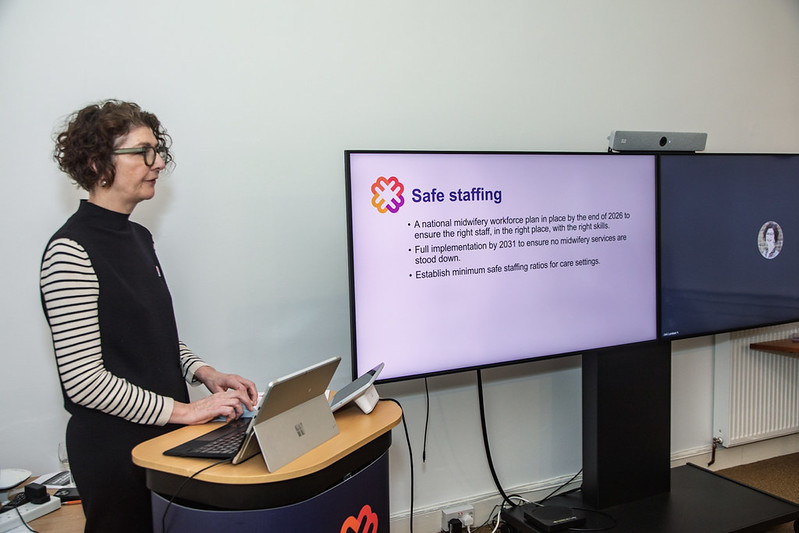Yesterday(17 June), the Scottish Government launched two new frameworks at Holyrood, the Health and Care Service Renewal Framework Care in the Digital Age: Delivery Plan 2024-25 and the Population Health Framework Scotland’s Population Health Framework 2025-2035.
These frameworks are not just policy documents: they are the blueprint for the future of health and care in Scotland, including maternity care. The Health and Care Service Renewal Framework prioritises moving care into community and primary care, but while we know the arguments for this in maternity, the reality is that the infrastructure to build hubs in communities has been eroded and the midwifery community rarely has a seat at the primary care table. This needs to change for the ambition of the welcome population health framework to be realised. Midwives must have an expanded, integrated, prevention-focused role demanding new skills and ways of working, centred on continuity and tackling inequalities. Success depends on adequate investment in – and valuing more generally – the midwifery workforce based in communities in hubs that address the wider determinants of health by co-locating care.
At the heart of both these documents is person-centred care and shared decision-making, as well as improved integration between the different areas of health and social care. There is a clear ambition to shift towards prevention and early intervention, with greater emphasis on pre-conception health, early pregnancy support and extended postnatal care, especially mental health. There will also be an emphasis on health promotion, including stop smoking services and weight management. Midwives are key advocates for addressing the health inequalities experienced by pregnant people and infants. The frameworks provide a strong mandate to escalate concerns about access barriers, poverty impacts, and service gaps affecting vulnerable groups.
In short, the publication of these frameworks signals a system-wide transformation of how health and social care operates and is delivered in Scotland. Maternity care is very much a part of this, particularly in the shift towards the delivery of care in communities.
We all know how integral midwives are to good outcomes for women and families, but we are rarely integrated in the wider health and care ecosystem. This redesign promises to see far closer ties with health visitors, GPs, social work, charities and community link workers. For this to be effective, there needs to be more and better co-location of services and shared digital platforms, as well as their increased use.
Continuity of Carer (CoC) features heavily in the frameworks, so expect continued pressure and support to implement sustainable CoC. We know that resourcing CoC in maternity care is resource-heavy, so there will need to be a significant amount of work by the Scottish Government to ensure that this need can be met.
The ambition of these two frameworks is to be applauded, but not accepted without question. The implications for those working within the service are many, not only with the proposed expansion of CoC, but also the relocation of services into community settings. The RCM will be making the case for further investment in the midwifery workforce before these plans are implemented, to enable that implementation to be done as seamlessly and as friction-free as possible – and, most importantly, maintaining services for women and families.
The two frameworks seek to address the underlying causes of Scotland’s poor health record, with a shift to prevention and early intervention. This is undoubtedly the right thing to do, but these are often ‘invisible’ workloads. The RCM will fiercely negotiate realistic caseload sizes within CoC models and robust workload assessment tools that capture this complexity and ensure safe staffing levels are maintained during the turbulence of service transformation.
The improvements in terms and conditions for the midwifery community in Scotland have been hard won, and there is still more to do. With the proposals set out in these two frameworks, we will be working harder than even to ensure that your pay and pensions are protected, that your banding is appropriate for the work that you are doing and that you receive appropriate training and CPD support to deal with the expanded workload.
There is an awful lot to unpack with these two frameworks and we will be working with members and our networks in Scotland to ensure that the voice of the midwifery community is heard in the development of the new health and care settlement.

